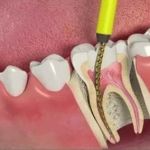How to Prevent Cavities from Forming in Molars: Essential Tips for Oral Health
- Understanding Cavities in Molars
- Why Molars Are Prone to Cavities
- Effective Habits to Prevent Cavities
- Professional Dental Care for Cavity Prevention
- The Importance of Diet in Preventing Cavities
Understanding Cavities in Molars
Cavities, also known as dental caries, are one of the most common dental problems people face. They occur when bacteria in your mouth produce acids that erode the tooth enamel, leading to holes or damage. Molars, located at the back of the mouth, are particularly susceptible to cavities due to their larger surface area, deep grooves, and the difficulty of cleaning them properly. These teeth play an essential role in chewing, which makes them more vulnerable to plaque buildup if not cared for correctly.
Why Molars Are Prone to Cavities
Molars are more prone to cavities for several reasons. First, their deep grooves and fissures provide a perfect hiding spot for food particles and bacteria. Even with regular brushing, it can be challenging to clean these areas thoroughly. Additionally, molars often come in contact with sugary foods and drinks, which fuel the bacteria responsible for cavity formation. Poor oral hygiene, infrequent brushing, and not flossing regularly can all contribute to the development of cavities in these critical teeth.
Effective Habits to Prevent Cavities
To protect your molars from cavities, it's essential to adopt effective dental habits. Here are some key habits to help prevent cavities:
- Brush Regularly: Brush your teeth at least twice a day with fluoride toothpaste. Pay special attention to your molars, using a soft-bristled toothbrush to reach the back areas effectively.
- Floss Daily: Flossing helps remove food particles and plaque that your toothbrush cannot reach, especially between molars where cavities often form.
- Use Mouthwash: Incorporating mouthwash into your routine can help kill bacteria and prevent plaque buildup on your teeth and molars.
- Choose Fluoride Treatments: Fluoride strengthens tooth enamel and makes it more resistant to decay. Consider fluoride treatments at your dentist’s office if you’re at higher risk for cavities.
By following these basic dental hygiene practices, you can significantly reduce the risk of developing cavities in your molars.
Professional Dental Care for Cavity Prevention
In addition to your daily oral hygiene routine, professional dental care plays a crucial role in cavity prevention. Regular dental visits are essential to detect early signs of cavities before they develop into larger issues. Dentists can apply dental sealants on molars, which provide an additional layer of protection by filling in the grooves and crevices, making them easier to clean and less prone to decay.
Professional cleanings every six months will also remove plaque and tartar buildup that brushing and flossing may miss, ensuring your molars remain healthy and free from cavities.
The Importance of Diet in Preventing Cavities
Diet plays a significant role in preventing cavities, especially in your molars. Foods high in sugar and starches contribute to the growth of bacteria that cause cavities. Reducing your intake of sugary snacks, soda, and sticky foods can help protect your molars from decay. Instead, opt for foods that promote oral health, such as:
- Crunchy fruits and vegetables: Apples, carrots, and celery help clean teeth naturally while providing essential vitamins and minerals.
- Calcium-rich foods: Dairy products like cheese and yogurt help strengthen tooth enamel and prevent decay.
- Water: Drinking water, especially fluoridated water, helps rinse away food particles and keep your mouth hydrated.
By maintaining a balanced diet, you can reduce the chances of cavity formation and keep your molars healthy for years to come.







 Maddison Ave Dental4.0 (83 review)
Maddison Ave Dental4.0 (83 review) Elite Dental Specialists, Joliet, IL4.0 (305 review)
Elite Dental Specialists, Joliet, IL4.0 (305 review) Brunswick Dental Group3.0 (71 review)
Brunswick Dental Group3.0 (71 review) San Fernando & Pacoima Family Dental4.0 (55 review)
San Fernando & Pacoima Family Dental4.0 (55 review) Mid-County Endodontic Group, P.A.5.0 (187 review)
Mid-County Endodontic Group, P.A.5.0 (187 review) Clove Dental Camarillo4.0 (225 review)
Clove Dental Camarillo4.0 (225 review) The Importance of Oral Health Education During Pregnancy for a Healthy Pregnancy
The Importance of Oral Health Education During Pregnancy for a Healthy Pregnancy Best Tips for Brushing Your Teeth Properly for Healthy Gums: Essential Techniques for Oral Health
Best Tips for Brushing Your Teeth Properly for Healthy Gums: Essential Techniques for Oral Health Why Skipping Dental Checkups Can Lead to Bigger Oral Health Problems
Why Skipping Dental Checkups Can Lead to Bigger Oral Health Problems Advantages of Porcelain Dental Restorations
Advantages of Porcelain Dental Restorations How Can Diabetes Cause Tooth and Gum Problems? Preventing and Managing Oral Health Issues
How Can Diabetes Cause Tooth and Gum Problems? Preventing and Managing Oral Health Issues Healthy Habits for Promoting Good Oral Health and Hygiene: Tips for a Healthy Smile
Healthy Habits for Promoting Good Oral Health and Hygiene: Tips for a Healthy Smile